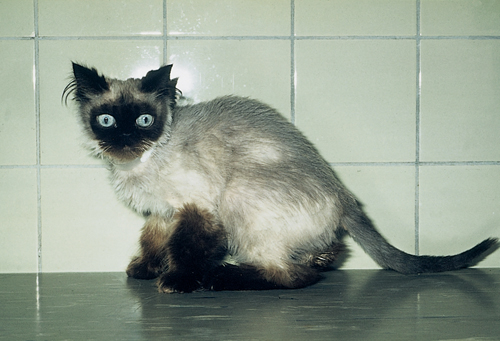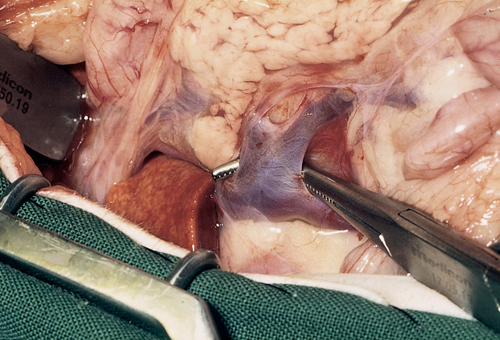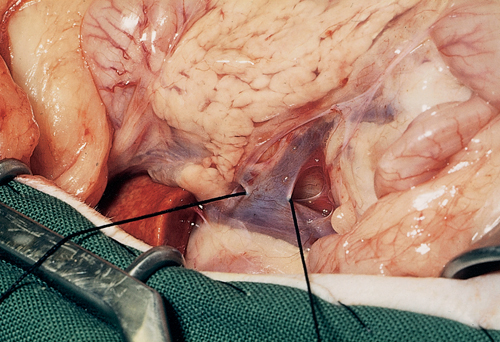Difference between revisions of "Small Animal Soft Tissue Surgery Q&A 20"
| Line 19: | Line 19: | ||
|a1= | |a1= | ||
Extrahepatic portosystemic shunt. | Extrahepatic portosystemic shunt. | ||
| − | |l1= | + | |l1= |
|q2=Describe the surgical therapy. | |q2=Describe the surgical therapy. | ||
|a2= | |a2= | ||
| Line 29: | Line 29: | ||
More recently, reports of shunt occlusion using an ameroid ring have shown good results with limited morbidity and mortality. | More recently, reports of shunt occlusion using an ameroid ring have shown good results with limited morbidity and mortality. | ||
| − | |l2= | + | |l2= |
|q3=What is the prognosis following surgery? | |q3=What is the prognosis following surgery? | ||
|a3= | |a3= | ||
| Line 35: | Line 35: | ||
Persistence or relapse of clinical signs after initial improvement is common and is caused in some cases by development of multiple acquired portosystemic shunts after surgery. | Persistence or relapse of clinical signs after initial improvement is common and is caused in some cases by development of multiple acquired portosystemic shunts after surgery. | ||
| − | |l3= | + | |l3= |
</FlashCard> | </FlashCard> | ||
Revision as of 12:16, 19 October 2011
| This question was provided by Manson Publishing as part of the OVAL Project. See more Small Animal Soft Tissue Surgery Q&A. |
A seven-month-old cat is presented with intermittent behavioral and neurological abnormalities. The abdominal cavity of this cat during exploratory laparotomy is shown.
| Question | Answer | Article | |
| What is the diagnosis? | Extrahepatic portosystemic shunt. |
[[|Link to Article]] | |
| Describe the surgical therapy. | The anomalous vessel is identified and a ligature is placed as close to the vena cava as possible. Portal vein pressure is monitored during attenuation of the vessel, and visual inspection of the splanchnic viscera is used to evaluate circulation and look for signs of passive congestion. The anomalous vessel is partially or totally closed, depending on the rise in portal pressure and the quality of visceral perfusion. More recently, reports of shunt occlusion using an ameroid ring have shown good results with limited morbidity and mortality. |
[[|Link to Article]] | |
| What is the prognosis following surgery? | The prognosis following surgery for portosystemic shunts in cats is less favorable than in dogs because postoperative improvement is less predictable. Persistence or relapse of clinical signs after initial improvement is common and is caused in some cases by development of multiple acquired portosystemic shunts after surgery. |
[[|Link to Article]] | |


